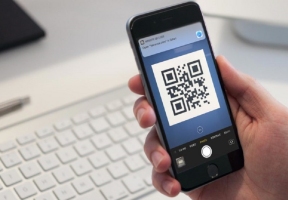
As QR codes get more popular, BBB.org/scamtracker is seeing more reports of con artists using them to mislead consumers. Companies use QR codes to point consumers to their apps, track packages, or view menus. “But because the human eye can’t read these codes, they have become a way for scammers to disguise malicious links,” says Steve Bernas, president and CEO of the Better Business Bureau serving Chicago and Northern Illinois. “You receive an email, a direct message on social media, a text message, a flyer, or snail mail that includes a QR code,” says Bernas. “You are supposed to scan the code with your phone’s camera, and it will open a link.” In some scams, the QR code takes you to a phishing website, where you are prompted to enter your personal information or login credentials for scammers to steal. Other times, con artists use QR codes to automatically launch payment apps or follow a malicious social media account. BBB tips on how to avoid QR code scams:
• If someone you know sends you a QR code, confirm before scanning it. Whether you receive a text message from a friend or a message on social media from your workmate, contact that person directly before you scan the QR code to ensure they haven’t been hacked.
• Don’t open links from strangers. If you receive an unsolicited message from a stranger, don’t scan the QR code, even if they promise you exciting gifts or investment opportunities.
• Verify the source. If a QR code appears to come from a reputable source, it’s wise to double-check. If the correspondence appears to come from a government agency, call or visit their official website to confirm.
• Be wary of short links. If a URL-shortened link appears when you scan a QR code, understand that you can’t know where the code directs you. It could be hiding a malicious URL.
If you’ve spotted a scam, report it to BBB.org/ScamTracker. Help protect your community by reporting scams or scam attempts (whether or not you’ve lost money), to help others to avoid falling victim to scams.









